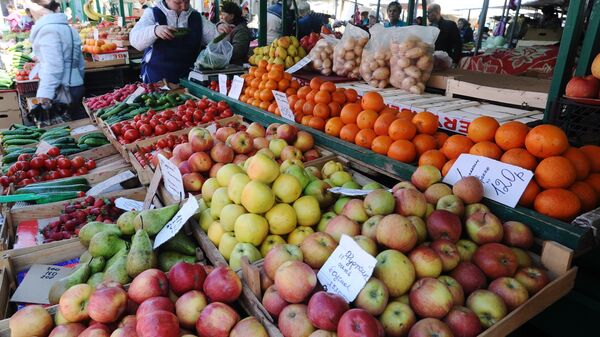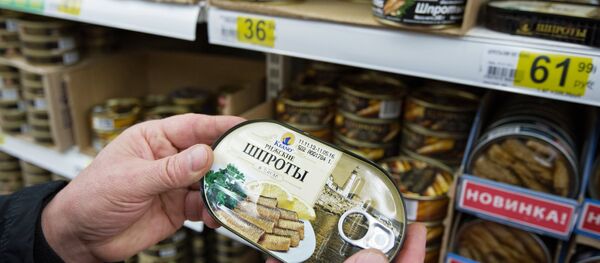MOSCOW (Sputnik) — Following Crimea’s reunification with Russia and the escalation of an internal Ukrainian conflict in 2014, the European Union, the United States and their allies accused Moscow of meddling in Ukrainian affairs and introduced sanctions against it.
Moscow has repeatedly denied those claims, and in August responded by imposing a year-long ban on certain food imports from the countries that imposed the restrictions.
"The counter-sanctions have more impact on Russia’s closest neighbors than on more remote ones. The effect was probably bigger on the neighboring countries, on Poland, Finland, on Europe as a whole," Rodzianko said.
"The effects [of the imposition of Russia’s agricultural ban] are mixed. For some of the American Chamber of Commerce companies they proved to be positive, while for the others – negative," he added.
According to Rodzianko, 11 months after the imposition of Russian restrictions, US retailers and food manufacturers have adapted to the new reality and have less complaints about increased Russian watchdog monitoring.
"There was a very significant intensification of retail networks inspections and they [the retail networks] were telling us about it. But this took place some six or eight months ago, when the sanctions were just introduced, causing a hike in inflation," Rodzianko said.
He noted that working conditions for foreign companies in Russia have become more stringent during the last year amid growing oil prices, a weakening ruble and a monitoring intensification. However, according to Rodzianko, the competition on Russian markets saw some decrease, creating more favorable conditions for those who stayed.


